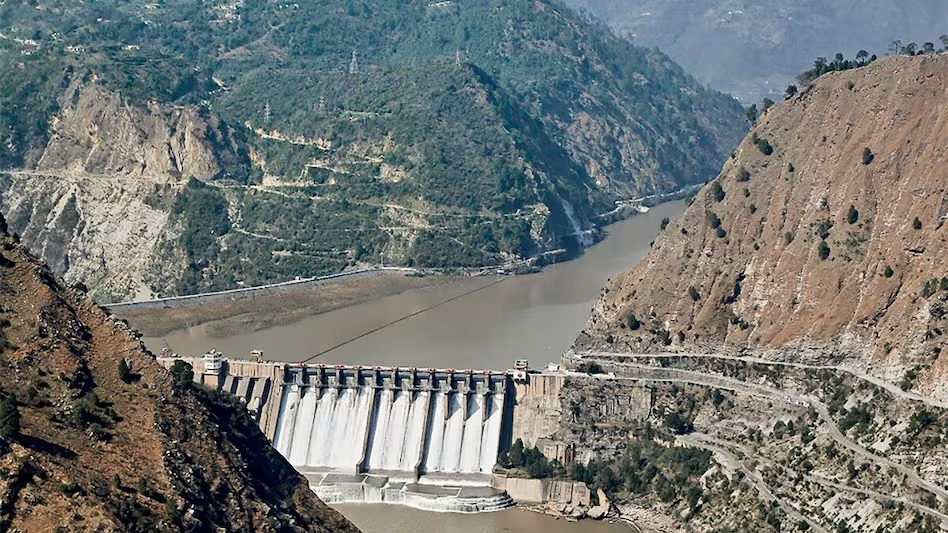In the blistering heat of Latifabad, Sindh, just a street away from the drying Indus River, farmer Homla Thakhur sprays pesticides on his parched vegetables, haunted by a growing fear.
The river, once a lifeline, is running dangerously low, and tensions between Pakistan and India have escalated after a deadly militant attack in Kashmir.
“If India stops the water, all of this will turn into the Thar Desert. The whole country will suffer,” said Thakhur, 40, while refilling his spray gun tank by the shrinking river. “We’ll die of hunger.”

His concerns are echoed by dozens of farmers and agricultural experts across Pakistan, especially as recent years have brought scant rainfall and worsening drought conditions.
The crisis deepened when India announced on Wednesday that it was suspending the World Bank-mediated Indus Waters Treaty of 1960 — a historic agreement that guarantees water access for about 80% of Pakistan’s farms.
READ ALSO: Russia Launches 149 Drones at Ukraine Overnight
India stated the suspension would remain until Pakistan “credibly and irrevocably” ends its alleged support for cross-border terrorism, referencing the attack in Kashmir where two of the three militants were said to be Pakistani nationals.

Pakistan has vehemently denied any involvement and warned that any move to stop or divert the Indus River waters would be considered an “Act of War.”
The Indus Waters Treaty, considered a cornerstone of fragile peace between the nuclear-armed neighbors, allocated three rivers each to India and Pakistan.
READ ALSO: Tragedy Strikes Vancouver Filipino Festival as Driver Plows Into Crowd
Though India cannot immediately halt water flows due to treaty limitations — which only allow hydropower projects without significant water storage — experts warn the situation could shift within months.

India’s Water Resources Minister, Chandrakant Raghunath Patil, posted on X: “We will ensure no drop of the Indus River’s water reaches Pakistan,” though he declined further comments.
Sources within the Indian government, speaking anonymously, revealed that India is planning to divert river waters for its own agricultural use via canals and is fast-tracking plans for hydroelectric dams — projects that could take between four to seven years to complete.
In the immediate term, India will also suspend data sharing on river flow rates, flood warnings, and skip meetings under the Permanent Indus Commission, severely limiting Pakistan’s ability to forecast and manage its water supplies.

“Without real-time data, Pakistan will struggle to plan and respond to floods or shortages,” said Kushvinder Vohra, a former head of India’s Central Water Commission and Indus Commissioner.
Beyond agriculture, the potential water shortage could cripple Pakistan’s already fragile economy. Electricity generation would suffer, and food security would be at serious risk.
Economist Vaqar Ahmed, from the UK consulting firm Oxford Policy Management, warned that Pakistan had “underestimated” the strategic risks linked to the treaty.
“India doesn’t yet have the infrastructure to immediately stop waterflows, especially during floods,” he noted. “But this provides a crucial window for Pakistan to address the many inefficiencies and leakages in its water sector.”
For now, farmers like Thakhur can only wait and hope, as Pakistan faces a race against time to secure its most precious resource — water — before the political tensions upstream turn into a full-blown national crisis.
Discover more from Scoop Hub
Subscribe to get the latest posts sent to your email.

